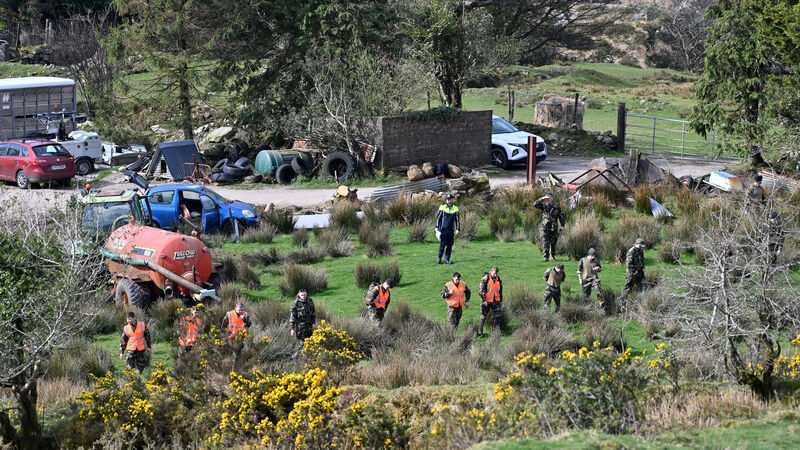Michael Gaine disappearance still a mystery as 'no leads' yet found in case of missing farmer

Defence forces and gardaí searching the farm of Michael Gaine who was last seen on March 20. Garda Commissioner said: 'As yet, we can find no trace of him.' Picture: Dan Linehan
“No leads” have been established in the case of missing Kerry farmer Michael Gaine almost one month after his mystery disappearance, the Garda Commissioner has said.
Drew Harris said he had an almost two-hour briefing on the case from gardaí in Kerry on the investigation on Tuesday.















